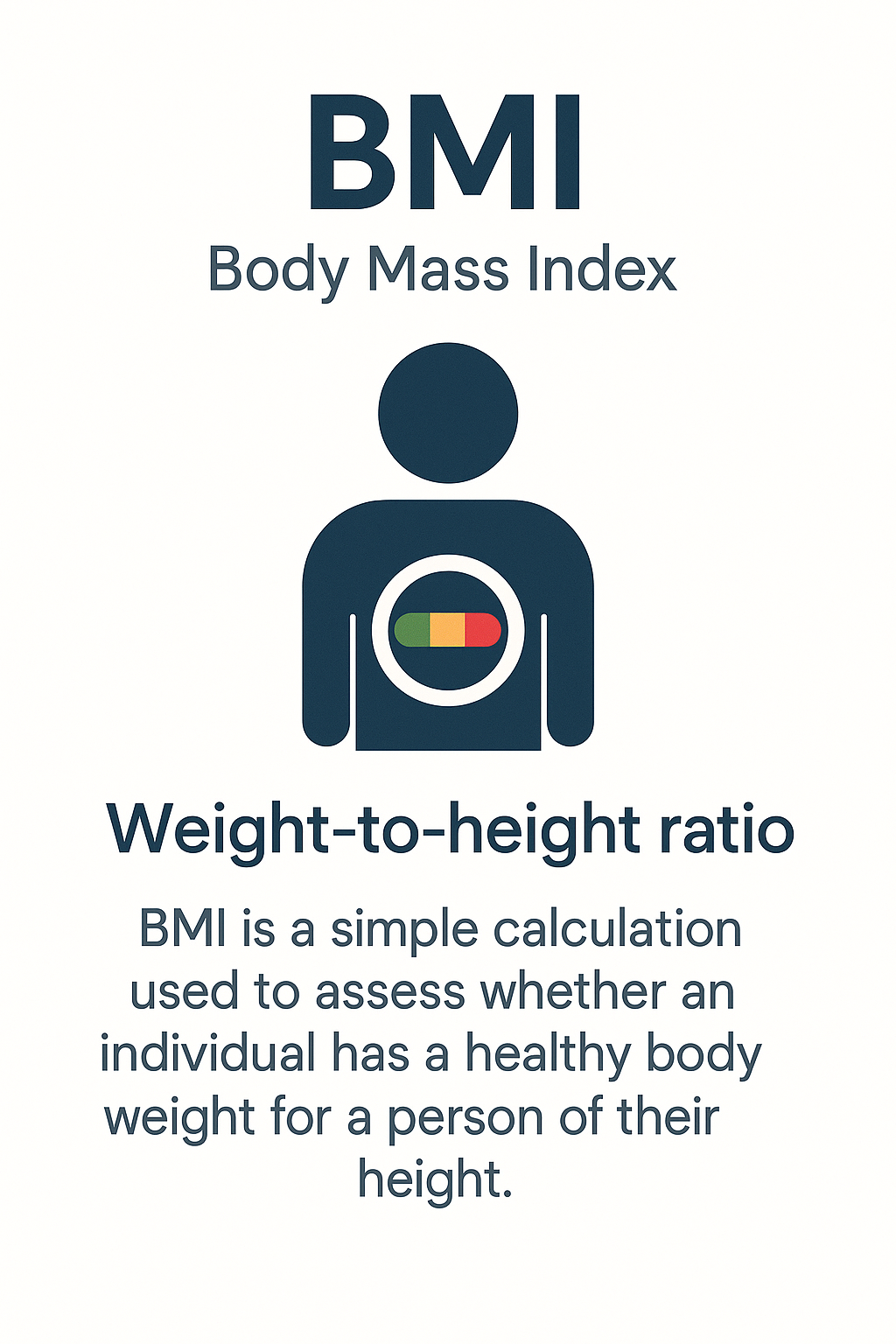What is BMI and How to Calculate It
Body Mass Index (BMI) is one of the most commonly used tools to assess whether someone is at a healthy weight. But what exactly is BMI, and how reliable is it as a health indicator?
What is BMI?
BMI, or Body Mass Index, is a numerical value calculated from your height and weight. It was developed in the 1830s by Belgian mathematician Adolphe Quetelet as a way to classify people's weight status on a population level.
The BMI formula provides a simple way to categorize individuals as underweight, normal weight, overweight, or obese based on their height-to-weight ratio.

How to Calculate BMI
The BMI calculation is straightforward:
BMI Formula
BMI = weight (kg) / height (m)²
Or in imperial units:
BMI = (weight (lbs) / height (inches)²) × 703
Example Calculation
Let's say you weigh 70 kg and are 1.75 meters tall:
- BMI = 70 ÷ (1.75 × 1.75)
- BMI = 70 ÷ 3.06
- BMI = 22.9
Want to optimize your metabolism?
Learn the science-backed methods to naturally boost your metabolic rate.
Free guide • No spam • Unsubscribe anytime
BMI Categories
The World Health Organization (WHO) defines the following BMI categories for adults:
| BMI Range | Category | Health Risk |
|---|---|---|
| Below 18.5 | Underweight | Increased risk |
| 18.5 - 24.9 | Normal weight | Lowest risk |
| 25.0 - 29.9 | Overweight | Increased risk |
| 30.0 and above | Obese | High risk |
Limitations of BMI
While BMI is a useful screening tool, it has several important limitations:
1. Doesn't Distinguish Between Muscle and Fat
BMI doesn't differentiate between muscle mass and fat mass. A muscular athlete might have a high BMI but very low body fat percentage, while someone with little muscle mass might have a "normal" BMI but high body fat percentage.
2. Doesn't Account for Fat Distribution
Where you carry fat matters for health. Abdominal fat (visceral fat) is more dangerous than fat stored in hips and thighs, but BMI doesn't account for this distribution.
3. Age and Gender Differences
BMI categories were originally developed based on data from young, white populations. They may not be as accurate for older adults, different ethnic groups, or account for natural differences between men and women.
Criticisms of BMI
Beyond its technical limitations, BMI has faced significant criticism from health professionals and researchers:
1. Oversimplification of Health
Critics argue that BMI reduces complex health status to a single number, ignoring crucial factors like cardiovascular fitness, metabolic health, bone density, and overall lifestyle. Many people with "high" BMIs are metabolically healthy, while some with "normal" BMIs may have poor health markers.
2. Potential for Weight Stigma
Healthcare professionals and researchers have raised concerns that BMI can contribute to weight stigma and discrimination. The focus on BMI categories can lead to bias in medical treatment and social situations, potentially causing more harm than benefit.
3. Inadequate for Individual Assessment
BMI was designed for population-level studies, not individual health assessment. Using it to make individual health decisions can be misleading and may not reflect a person's actual health status or risk factors.
4. Cultural and Ethnic Bias
The standard BMI categories may not be appropriate for all ethnic groups. For example, people of Asian descent may have higher health risks at lower BMI levels, while some populations may be healthy at higher BMI levels than the standard categories suggest.
5. Ignores Body Composition Changes with Age
As people age, they naturally lose muscle mass and may gain fat, even if their weight stays the same. BMI doesn't account for these normal age-related changes in body composition, potentially misclassifying older adults' health status.
Want to master portion control?
Get our proven meal planning system that makes eating less feel effortless.
Free guide • No spam • Unsubscribe anytime
When to Use BMI
BMI is most useful as:
- A quick screening tool for population health studies
- A starting point for assessing weight status
- A way to track changes in weight status over time
- One factor among many in health assessments
Better Alternatives to BMI
For a more complete picture of health, consider these additional measurements:
- Waist circumference: Better indicator of abdominal fat and health risks
- Body fat percentage: More accurate than BMI for body composition
- Waist-to-hip ratio: Indicates fat distribution patterns
- Waist-to-height ratio: May be more predictive of health risks than BMI
- Overall fitness level: Cardiovascular health and strength matter more than weight alone
- Metabolic markers: Blood pressure, cholesterol, blood sugar levels
The Bottom Line
BMI is a useful starting point for assessing weight status, but it shouldn't be the only factor you consider. It's best used alongside other health indicators and should always be interpreted by healthcare professionals who can consider your individual circumstances.
Remember, health comes in many sizes, and BMI is just one piece of the puzzle. Focus on overall healthy habits like regular exercise, balanced nutrition, and adequate sleep rather than obsessing over a single number. Your overall well-being and quality of life are far more important than fitting into a specific BMI category.
Ready to Calculate Your Calorie Needs?
Use our free calorie deficit calculator to determine your daily calorie needs for weight loss.
Try Our Calculator